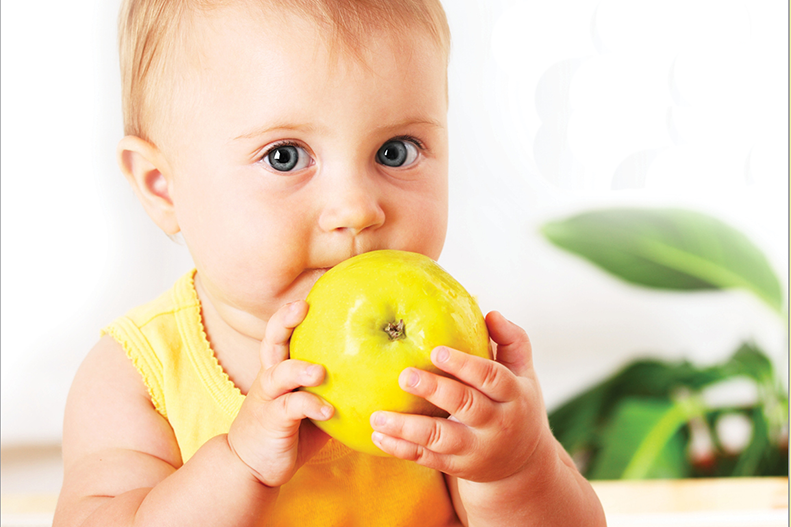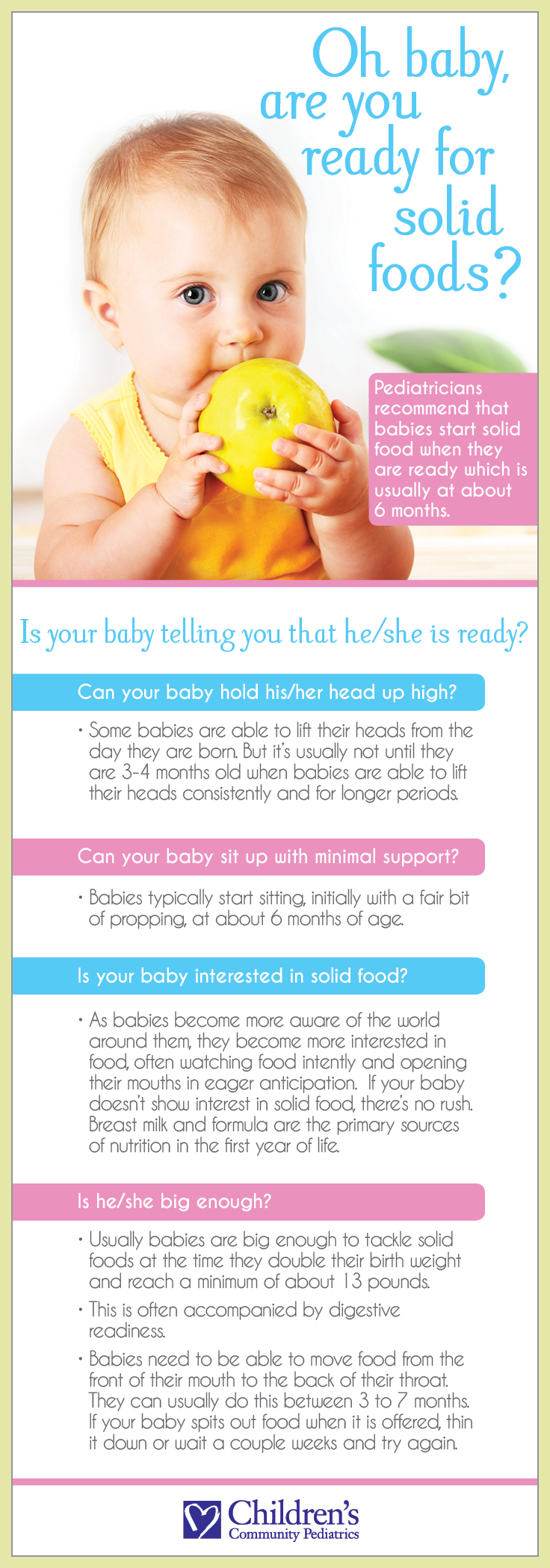Introducing your baby to solid food is big step in child development. Pediatricians recommend that babies start when they are ready which is usually at about six months. However, every baby is different and experiences development at his or her own pace.
As a parent, you can more readily decide if your baby is ready for solid food. Here are a few simple questions to as yourself before your little one makes the transition from breast milk or formula to more solid foods.
Never Miss a Beat!
Subscribe to Our HealthBeat Newsletter!
Thank you for subscribing!
You can now select the specific newsletters you'd like to receive.
You are already subscribed.
Subscribe to more newsletters in our email preference center.
Sorry, an error occurred. Please try again later.
Get Healthy Tips Sent to Your Phone!
Is Your Baby Telling You That He/She Is Ready?
Can your baby hold his/her head up high?
Some babies are able to lift their heads from the day they are born. But it’s usually not until they are three to four months old when babies are able to lift their heads consistently and for longer periods.
Can your baby sit up with minimal support?
Babies typically start sitting, initially with a fair bit of propping, at about six months of age.
Is your baby interested in solid food?
As babies become more aware of the world around them, they become more interested in food, often watching food intently and opening their mouths in eager anticipation. If your baby doesn’t show interest in solid food, there’s no rush. Breast milk and formula are the primary sources of nutrition in the first year of life.
Is he/she big enough?
- Usually babies are big enough to tackle solid foods at the time they double their birth weight and reach a minimum of about 13 pounds.
- This is often accompanied by digestive readiness.
- Babies need to be able to move food from the front of their mouth to the back of their throat. They can usually do this between three to seven months. If your baby spits out food when it is offered, thin it down or wait a couple weeks and try again.
Whether you’re a first-time parent or you’ve walked the path of parenthood before, child is unique. When you have questions related to pediatric development and more, visit the Children’s Hospital of Pittsburgh of UPMC website or call 412-692-5325 to schedule an appointment.
About UPMC Magee-Womens
Built upon our flagship, UPMC Magee-Womens Hospital in Pittsburgh, and its century-plus history of providing high-quality medical care for people at all stages of life, UPMC Magee-Womens is nationally renowned for its outstanding care for women and their families.
Our Magee-Womens network – from women’s imaging centers and specialty care to outpatient and hospital-based services – provides care throughout Pennsylvania, so the help you need is always close to home. More than 25,000 babies are born at our network hospitals each year, with 10,000 of those babies born at UPMC Magee in Pittsburgh, home to one of the largest NICUs in the country. The Department of Health and Human Services recognizes Magee in Pittsburgh as a National Center of Excellence in Women’s Health; U.S. News & World Report ranks Magee nationally in gynecology. The Magee-Womens Research Institute was the first and is the largest research institute in the U.S. devoted exclusively to women’s health and reproductive biology, with locations in Pittsburgh and Erie.

